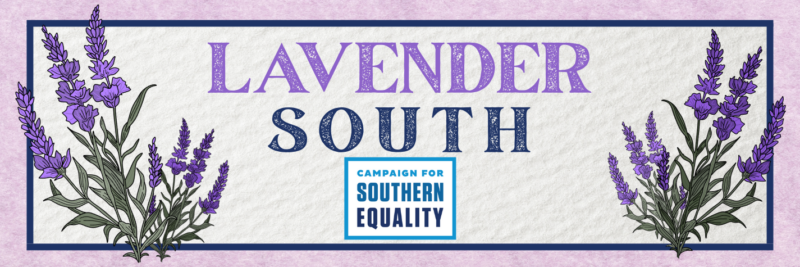
You have heard it said that ‘art urges voyages.’ These words from the late poet-prophet Gwendolyn Brooks responding to an interview question on a public art installation. Yet, as I consider the ways of surviving the post-election South as a Black queer person, the phrase comes back to me. Sometimes, I think of taking the metaphorical canvas like a raft, riding the Cumberland River to safety like my ancestors. She says in that same interview, ‘art hurts’. The art that I feel called to create as affirmation to LGBTQ+ people all around the country does hurt. It cuts deep because it requires me to speak plainly about my country, and the desire that the majority of Americans have demonstrated. It has hurt to make pitches to publications, to put together outlines, but now is not the time for silence. It is clear that for queerSoutherners, the best help is inside the house. We will be our own community centers. We will continue to give grants of aid to each other. Our policy will be a federation of love.
In 2022, Justice Clarence Thomas wrote in his concurring opinion overturning Roe v. Wade that the Supreme Court has a “duty to ‘correct the error’ established in those precedents”—specifically naming Obergefell v. Hodges. An overturn of the case that legalized same-sex marriages at the federal level would return the decision to the states, and places like Tennessee, Alabama, and Georgia would likely outlaw them all together. In anticipation of this, people like Nashville-based singer and activist Morgxn are creating a rainbow wave. Morgxn, who married his longtime partner, Gabe, earlier this month, launched the Love Circle Community Wedding project.
When asked why marriage is so important for LGBTQ+ people right now, Morgxn said: “I don’t need the government to tell me I can or can’t get married. But I need people to realize that it is a total blessing not to be concerned about which group of rights will or won’t be on the chopping block from election to election.”
The Community Wedding aims to gather LGBTQ+ couples in Nashville for matrimony before January 20th, Inauguration Day. Organizers have secured an officiant and notary, wedding cake and photographers and are currently working with city officials to get the license fee waived. A strong number of applicants have already indicated interest, but the organizers encourage more.
“I’m gonna marry my partner whether you let me or not. And I will not be quiet about it,” Morgxn added.
Cheryl*, a trans woman who contracts for NASA, and is based in Huntsville, Alabama, is doing her best to stockpile HRT and encourages those in her transgender support group to do the same. She is experiencing institutions that have served her, from the legal system to medical providers, turn from allies to enemies. Cheryl also vocalizes the need for other trans people to complete passport applications and update gender markers. It is evident that she is trying to keep working through a deadly political climate and maintain the tethers to community.
“We’re hosting a Friendsgiving this year, mostly trans friends. Simply having time together in the community is so needed right now. So many of us feel isolated and scared beyond belief,” Cheryl said.
Cheryl, like many other queer people, is considering a voyage from the South. But she also shared that her children and parents live in her area. Working at NASA has been a dream of hers ever since she was a child. To leave would be a loss. Yet, she expresses her worry that the anti-trans and anti-LGBTQ+ bills that failed in the Alabama state legislature over the past few years, will likely pass now and be reinforced at the federal level. Some might argue that Cheryl should feel safe considering the presence of Huntsville’s queer community. However, during their last Rocket City Pride celebration, controversy surrounding the inclusion of an anti-trans gay group resulted in the abstention of many trans individuals. Challenges within challenges.
When asked about the role of love in helping us to thrive now, Cheryl says: “Those of us who do survive what is coming will only do so through a peer-to-peer offline support network. We still have each other, and it is the love that binds us together — love in the fullest ‘verb’ sense, that will get us through.”
While many people groups have helpful definitions of the word love, I believe that queer people in the South are uniquely positioned to talk about this four-letter phenomenon. As Cheryl puts it, love is ‘peer-to-peer’ support. It is hands reaching across to each other in defiance of the empire’s definition of family. It is going. It is staying. It is a basket of food or a bundle of HRT left on a doorstep. It is saying yes to each other, even while Empire is saying no.
*This name has been changed to protect the respondent’s identity.
During this difficult time, we want to offer information and resources to help you prepare for what is to come, drawn from LGBTQ+ and other movement leaders. Here in the South, our communities have been facing the current wave of anti-LGBTQ+ policies for years, and folks on the margins have been fighting against oppression throughout our country’s history. Despite these circumstances, we have always found ways to survive, be joyful with one another, and thrive in the face of tremendous challenges. Go to the link for steps you can take to prepare for the Trump Administration. https://southernequality.org/meeting-the-moment-how-lgbtq-southerners-can-prepare-for-the-trump-administration/

